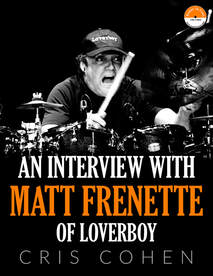 Cris Cohen: You mentioned you have incorporated the keyboard player into part of the drum solo. There are also a lot of really cool videos of you and Kenneth "Spider" Sinnaeve, the bass player, doing stuff as part of a solo. How do you guys write something like that? Matt Frenette of Loverboy: When I saw Jimmy Hendrix in ‘67, the opening band was the Vanilla Fudge. Carmine Appice was the drummer. Tim Bogert (the bass player) and Carmine did a solo like that. It was not a conscious thing that I said to Spider, “We have to do this thing like Vanilla Fudge did.” This stuff just kind of happens. We have been doing this a long time. We don't plan it or plot it. It just kind of comes. It is kind of like “Follow the Leader.” With Loverboy, we take a break out of “Hot Girls In Love” and I do my little break first. Then I count Spider in, kind of like Buddy bringing the band back in. All of these influences stick with you through the years. --- Download the free PDF e-book That special project I worked on is finally being released tomorrow... From Huey Lewis & The News:
Starting at noon eastern time tomorrow (April 24), this e-book will be available for free exclusively to subscribers of our newsletter! Not a subscriber yet? The sign up form is in the bottom menu of our website, https://hueylewisandthenews.com/ “Making Beautiful Noise” takes the reader backstage and into studios, homes, and hotel rooms as the band recounts the writing and recording of their album “Weather.” Read about the song sparked by a comment in a convenience store, the track recorded across 15 cities, and the tune that took 20 years to get right. The stories behind each song are as different as the songs themselves. It is a tale of luck and perseverance, happy accidents and attention to detail, moments of inspiration and years spent sweating over the right feel. As much as this book is about an album, it is also about a band, their commitment to their craft, and the joy they still get – after all these years – creating songs together. “Playing with my friends / Until the music ends” Download the latest e-book for free. Click on either the text link or the book cover and a PDF will immediately download to your device.
I interviewed Matt Frenette of Loverboy. We discussed:
Want an e-book like this to promote your band or business? Contact me 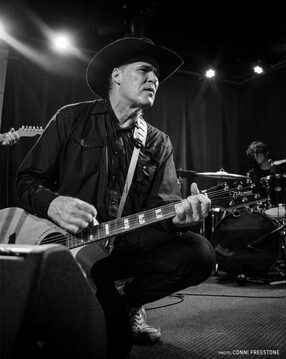 Cris Cohen: I read that the songwriting for the album “Color TV” stretched over 20 years. With songs that went back that far, when it came time to record, did you make adjustments, so those songs reflected where you are currently, or did you keep them as time capsules? John Easdale of Dramarama: I would say they were more of a time capsule, particularly the songs that deal with substance abuse. I wrote them when I was still struggling to get clean. Actually, I left them off the last two albums I put out. They were just a little bit too close for comfort at the time, and they fit into the narrative of this album really well. Cris Cohen: With the passage of time, are you able to have a little distance between where you are now and the emotional state you were in when you wrote them? John Easdale: Definitely. It is more like looking back on something rather than being in the middle of something. Cris Cohen: But then, when you record, do you have to kind of pull all that back into yourself to get the same emotion as when you wrote it? John Easdale: It is funny, because, when you sing a song, it does not matter if it is a song I wrote 35 years ago, 25 years ago, or 10 years ago. It brings you right back to that moment. And hopefully, if I am doing it right, I channelled that moment. And that moment in time and those emotions come back, and that spurs on the energy of the song. Cris Cohen: It has been a 15-year gap between your previous album and this one. What was the reason for the gap in the recording years? John Easdale: We actually started recording about 10 years ago. Most of it was a question of being able to get in the studio. We were lucky enough to use this wonderful facility in Los Angeles called The Village. It is usually occupied by world class clients. We snuck in on weekends and holidays. It took a lot longer as a result. Cris Cohen: When you let something percolate for that long, how do you resist the urge to keep tweaking these songs? Since they are not recorded yet, and you have got all this time, I would think the urge would be, "Maybe I will just change this a little, change that a little.” John Easdale: There was a lot of that in terms of the sounds and new technologies, allowing us to change the mixes, and maybe add a little bit of overdub here and there. But for the most part, the songs were born fully grown. You would notice the differences if you listened to the initial recordings and the finished product, but you would also notice they were very much finished products. When I write the songs, and I know what I want them to sound like, I show the band and that's what you get. Watch the full interview
Subscribe to the newsletter to have excerpts like these delivered to your email Cris Cohen: What is your drumming philosophy?
Chris Kimmerer, drummer for Thomas Rhett: There are a couple of approaches. There is the clinician / technician approach… the part of me that went to music school, studied, and works on drumming rudiments. Then there is a more creative side of things. There is a happy mix there, but I think the listener part of me gravitates to stuff that makes me feel something, that moves me, even physically. But I still want to pursue excellence in a lot of other areas, with my technique and my studies. All of that is important to me. As a professional musician, I really want to use what I do in a performing sense to connect with people. That tends to be through simplified playing a lot of times. Finding things that will support the other positions on stage. Emoting something to the people that are here to experience the show. Does that kind of make sense? It is sort of out there, subjective stuff. As a drummer, I want to engage as much as possible with the people there to listen and experience the music with us. Cris Cohen: Okay, so for you it is connecting. Connecting with your band. Connecting with the audience. Chris Kimmerer: It really is. It comes down to that. Cris Cohen: You seem like someone who is never done, never satisfied. Over the years, you made some big changes to your drumming technique. For instance, in recent years, you learned how to play using traditional grip.
Ben Sesar, drummer for Brad Paisley: It is all about trying to make the gig easier. Because with Brad, it is very demanding musically. There is a lot going on and the intensity is high. And there is something magical about having more at your disposal than you actually need, so that when you are cruising along, it is that much easier. Cris Cohen: In other words, learning to play fast improves your ability to play slowly as well. Ben Sesar: Yes. It is like an Aston Martin versus a Volkswagen Bug from the 60s. Both can go 70 miles an hour. But one is doing it easily and one is doing it at the top of its range. That is the purpose: To increase your headroom so that everything you do just rolls off. That is how I look at it. I think I am heading into the home stretch with the special project I have been working on. Hopefully it will be ready for release in the next couple of weeks.
Cris Cohen: When artists do cover songs, no matter what, you end up putting your own spin on it. You can play the exact same notes, in the exact same time, but somehow it always comes out with a little bit of your own twist. It sounds like that's how you describe your producing. Dwight Baker of The Wind and The Wave: Totally. I always try to serve the song and just follow the song down the path to wherever it ends up. When we first started, we had kind of a different sound than, say, record three with The Wind and The Wave. I was a little worried about that. Even record two. It's easy to make a record when you don't have any fans. And when Patty and I started making that first record, we had minus 200 fans. We didn't even have a band name. And to be signed a couple of months later was weird. It's even weirder to go, "Do people expect this record from us (again)?" You know what I mean? My decision was, "I guess, but I don't think I can do that record again. I just have to do whatever's coming out at the time." Watch the full interview
Subscribe to the newsletter to have interview excerpts and e-books delivered to your email |
Archives
June 2024
|
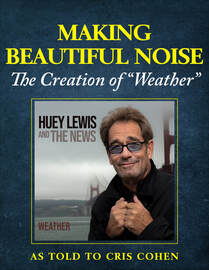
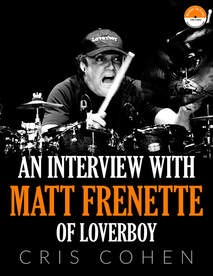

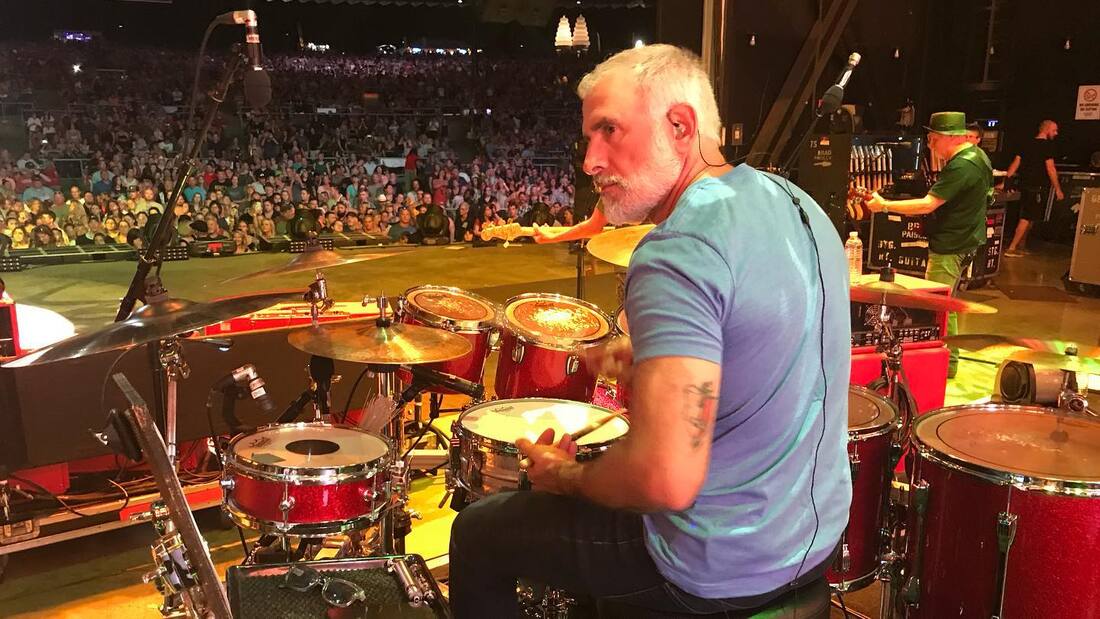

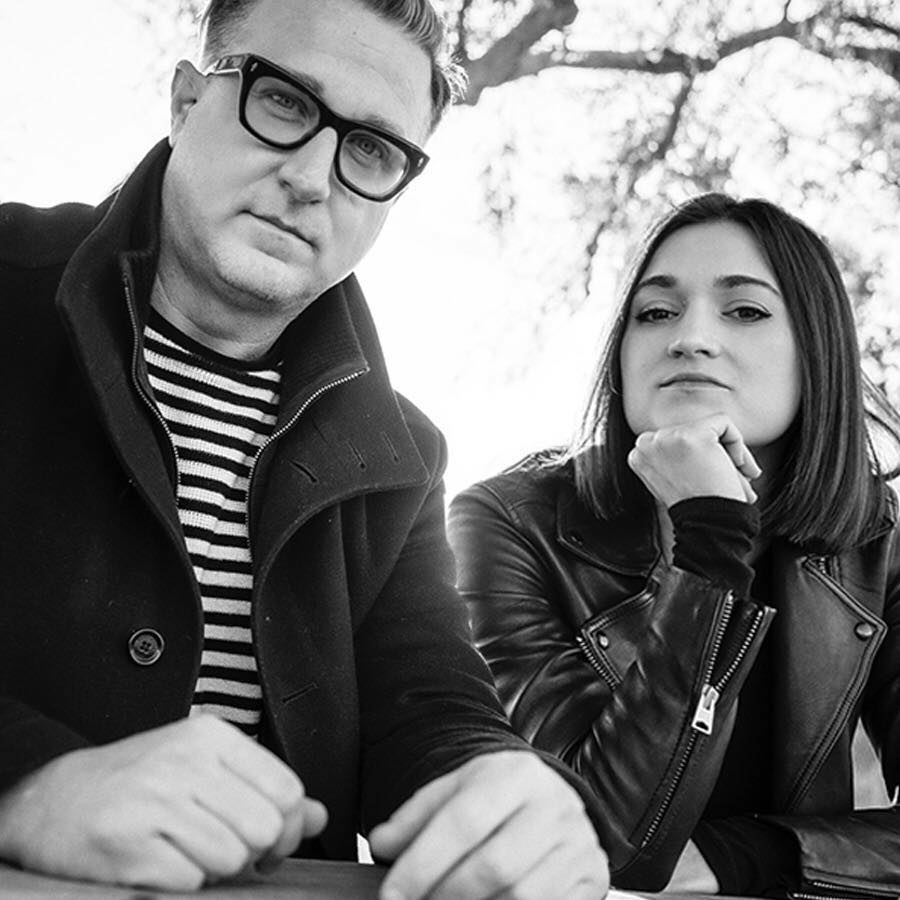
 RSS Feed
RSS Feed